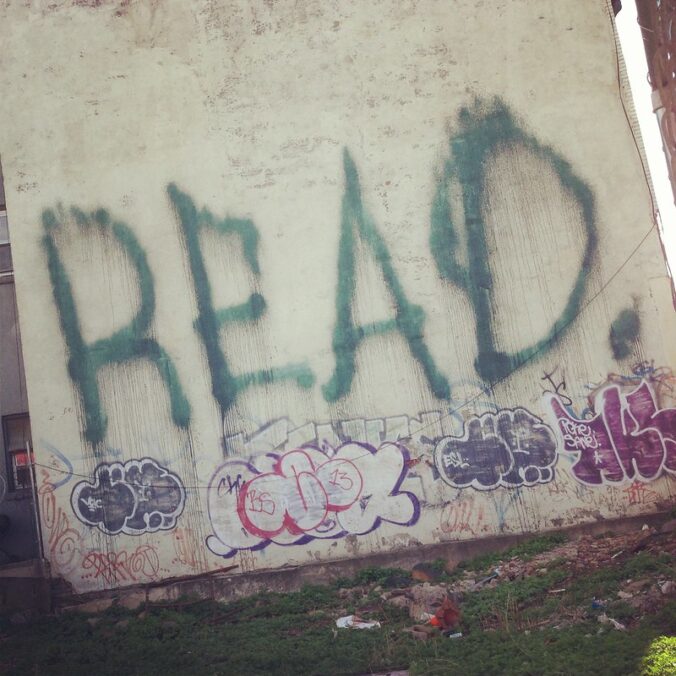This semester, we have a few readings that specifically address reading. These readings help us learn about ourselves as readers and writers. This week, we’re reading Mike Bunn’s “How To Read Like a Writer.”
In a comment below, include a piece of advice or a technique Bunn recommends. Copy his words into your comment (that is, quote him), and note the page number from the article. Then paraphrase what he’s saying. Extra bonus points if you write about a piece of advice that no one else in class writes about. Read everyone else’s comments, too, since this will be a great list of advice!
Photo credit: “Read” by RJ via Flickr under the license CC BY-SA 2.0.





“ It’s pretty normal to get confused in places while reading, especially while reading for class, so it can be helpful to look closely at the writing to try and get a sense of exactly what tripped you up. This way you can learn to avoid those same problems in your own writing.”
This is such a useful piece of advice from Bunn’s essay. Being able to understand what a certain part of the reading is supposed to do can help you figure out what it means. For example, knowing that Bunn uses student testimonials to support and elaborate on his points can help you know what to do with those quotations, and that can help you understand what the students are saying.
Pay attention to the writer’s language, word choice, details.(do we always want to say something in the shortest way possible, or is there a value in saying more or saying it longer?)
Ask questions appropriate to the reading, such as author’s purpose and intended audience. what technique is the writer using?
Ask: what advantages and disadvantages would that technique provide to your writing?–what writing techniques can you learn from the writer?
Question the author’s language.
Point out where you are confused–knowing its purpose might help you clarify what’s confusing.
You can use someone’s writing to figure out their personality, make a connection.
How you begin an essay can shape whether the reader wants to read or not, makes the author credible or not.
Pay attention to: purpose, intended audience, word choice (diction), tone, author, techniques used.